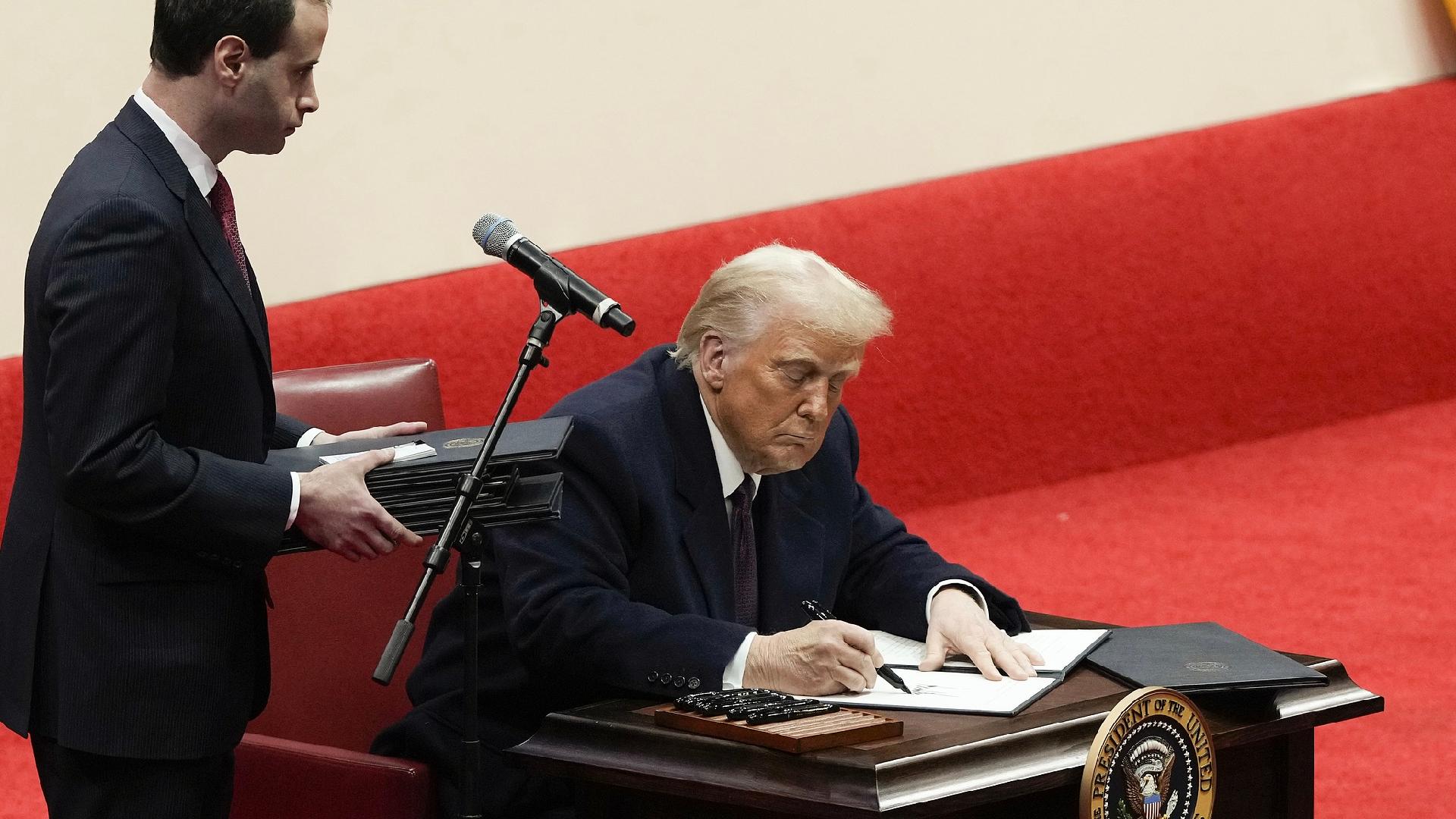Trump's second exit from Paris Agreement expected to have minimal effect
Shortly after taking office, US President Trump issued an executive order mandating the United States' withdrawal from the significant 2015 Paris Agreement, as well as other agreements and commitments associated with the United Nations Framework Convention on Climate Change (UNFCCC).

Following his inauguration, U.S. President Trump signed an executive order to withdraw the United States from the pivotal 2015 Paris Agreement, along with several other agreements under the United Nations Framework Convention on Climate Change. Analysts anticipate that Trump will further dismantle the "climate legacy" established by previous administrations, hinder U.S. climate initiatives, promote fossil fuel development, and delay the transition to clean energy.
Trump has consistently been characterized as a "climate skeptic" and "climate nihilist." Influenced by lobbying from fossil fuel interest groups, the rising demand for energy fueled by advancements in artificial intelligence, and the complexities of geopolitical rivalries, Trump's retreat from the U.S. climate agenda for a second time is not unexpected.
The implications of Trump's climate policies will affect global climate governance and the energy transition in multiple ways. First, they will hinder the implementation of the Paris Agreement, which mandates that signatory countries increase their climate commitments periodically. Countries are slated to establish new climate targets by February 2025, and Trump's second withdrawal from the agreement may create a negative "demonstration effect," leading some nations to adopt a more cautious approach, thereby reducing their willingness to pursue climate actions in the near term.
Moreover, these policies are likely to impact climate financing, weakening developing nations' capacity to meet their commitments. Trump has announced the immediate cancellation of the U.S. international climate finance plan, a significant source of funding as the U.S. has been the largest contributor to international climate initiatives globally. The refusal to provide this funding will create a notable gap that other developed nations may struggle to fill promptly, ultimately limiting the investments developing countries can make in clean energy technologies and climate change adaptation.
While Trump's position on climate change may influence the willingness and ability of parties to the Paris Agreement to fulfill their obligations, global climate governance processes will not be rendered ineffective due to U.S. withdrawal. The global shift towards clean energy is expected to continue unabated. As noted by Fatih Birol, Executive Director of the International Energy Agency, Trump's presidency "will not stop the energy transition."
The global context surrounding Trump's withdrawal differs significantly from the conditions during his first term. In 2015, nations were just beginning to reach a consensus and had formed the Paris Agreement. By 2024, they will have spent nearly a decade undertaking domestic measures to reduce emissions and enhance their economies through clean energy initiatives. Over the past ten years, global investments in clean energy have consistently risen. The International Renewable Energy Agency reports that global installed renewable energy capacity grew from 1,985 GW in 2015 to 3,865 GW by 2023—almost doubling. Additionally, the cost of clean energy has dropped substantially, with electricity from photovoltaic plants decreasing by 90 percent (from $0.460/kWh in 2010 to $0.044/kWh in 2023) and the average generation cost of wind power falling by 70 percent (from $0.111/kWh in 2010 to $0.033/kWh in 2023). These trends highlight the economic advantages of clean energy technologies beyond their environmental and developmental benefits.
Given the economic imperatives driving efforts to address climate change and the global transition to clean energy, Trump's withdrawal from the Paris Agreement, along with the uncertainty his policies create, may ultimately diminish the investment efficiency of U.S. companies. This scenario places them at a competitive disadvantage in the clean energy sector, potentially undermining the U.S.'s competitiveness and global standing.
Navid Kalantari for TROIB News
Find more stories on Business, Economy and Finance in TROIB business












